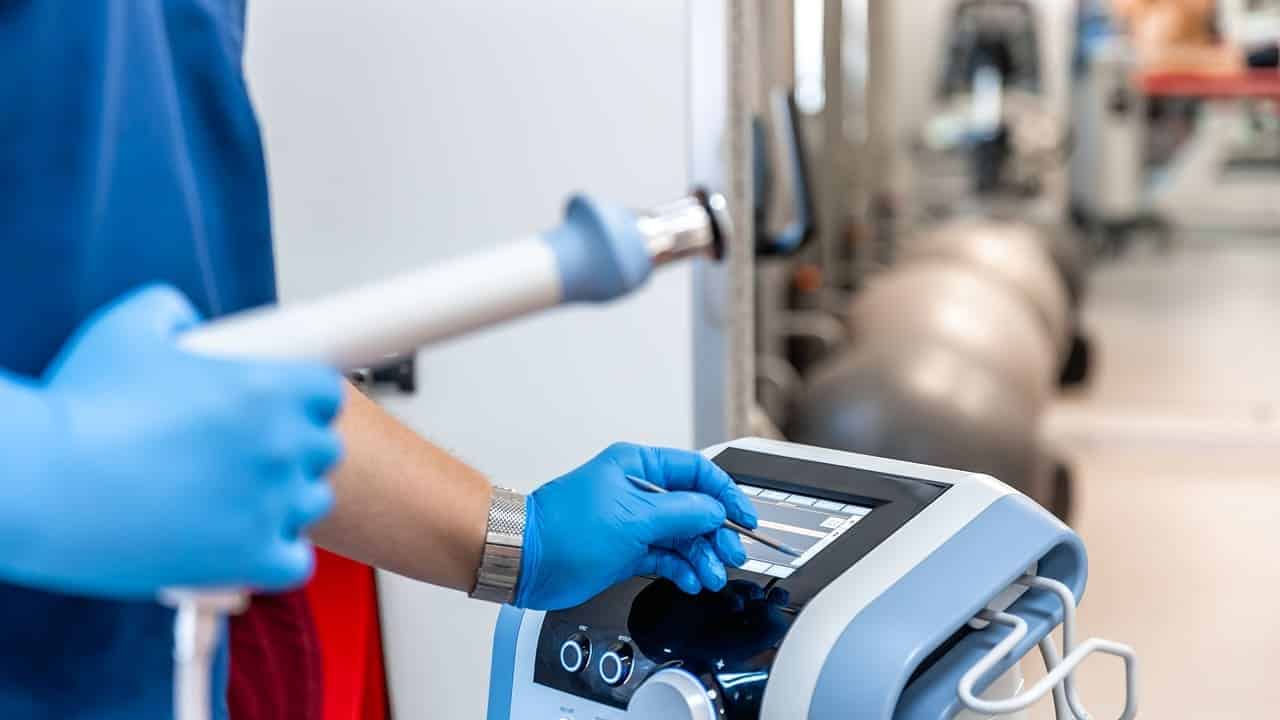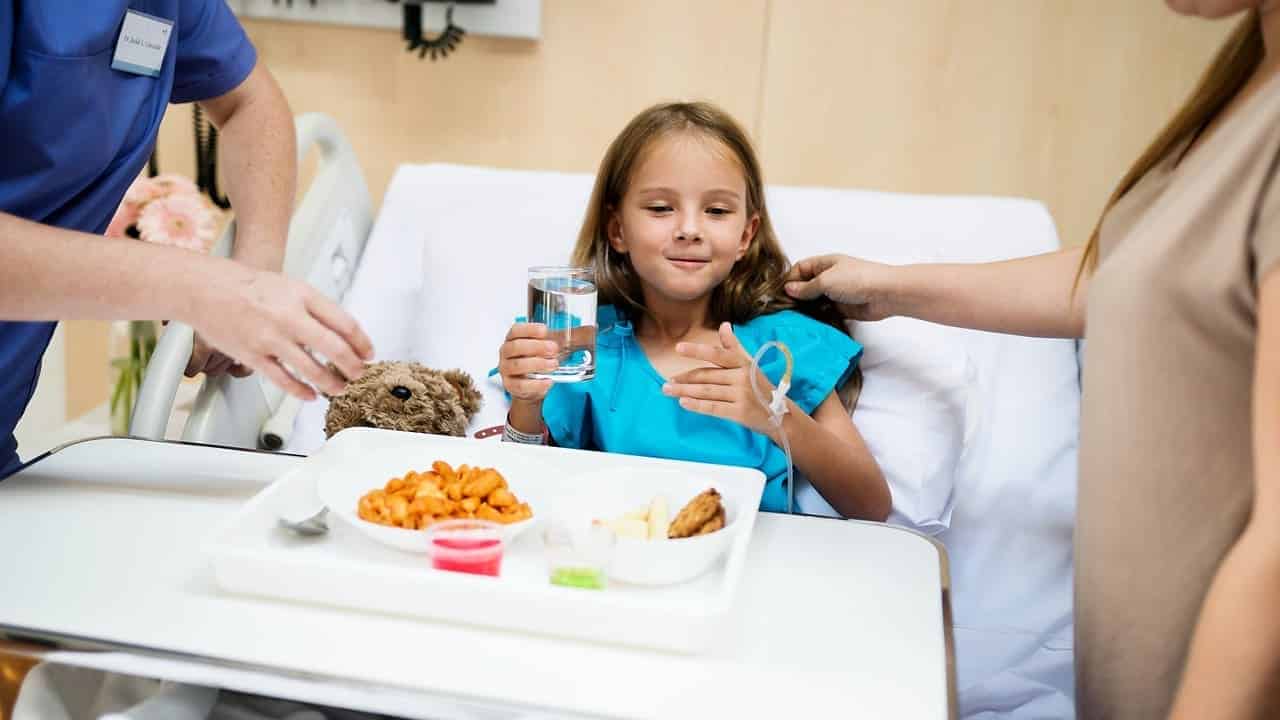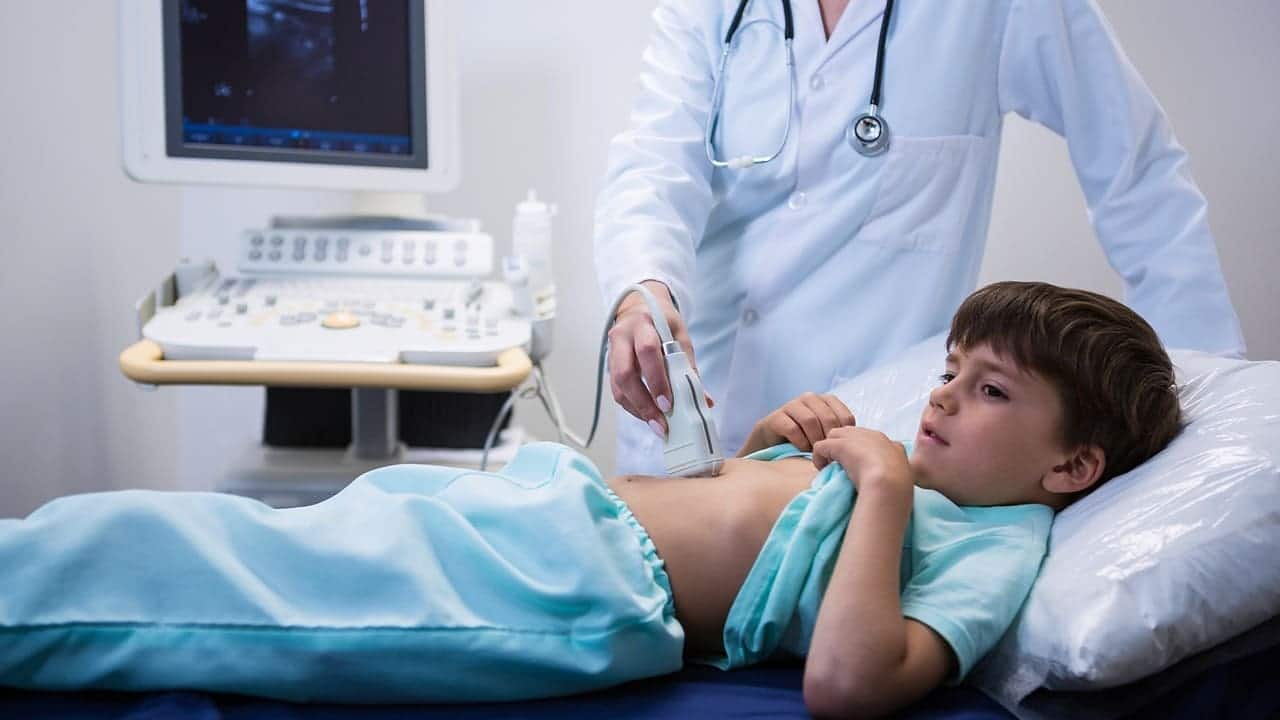What Is Pediatric Gastroenterology? A Parent’s Guide
Pediatric gastroenterology focuses on the digestive system and liver health in infants, children, and adolescents. The pediatric gastrointestinal (GI) tract includes the esophagus, stomach, intestines, pancreas, gallbladder, and liver.
When these organs aren’t working well, children can have symptoms like abdominal pain, nausea, vomiting, diarrhea, constipation, reflux, poor appetite, weight loss or gain, and blood in the stool. Pediatric gastroenterology specialists use child specific assessments and treatments to address common and complex conditions while supporting healthy growth and development. Families benefit from clear explanations, age appropriate testing, gentle procedures, and coordinated nutrition guidance tailored to daily routines.

Pediatric gastroenterologists treat many conditions, such as reflux, lactose intolerance, celiac disease, food allergies, IBS, IBD (like Crohn’s and ulcerative colitis), constipation, stomach pain, frequent vomiting, diarrhea, and feeding problems.
Liver care includes help for jaundice, high liver enzymes, fatty liver, and bile flow issues. Nutrition support is available for picky eating, slow growth, tube feeding, and checking for vitamin or mineral shortages. The main goal is to ease symptoms, improve daily life, and help kids stay active at home and during play.
Pediatric Gastroenterology and Nutrition: Digestive Health for Kids
Nutrition is central to GI health. Pediatric gastroenterology clinics guide families through balanced eating that supports energy, growth, and symptom control. For reflux, smaller meals and avoiding trigger foods may help. For constipation, fiber rich foods, hydration, and regular toileting routines are foundational. For lactose intolerance, switching to lactose free dairy or alternative calcium sources can reduce symptoms while preserving bone health. For celiac disease, a strict gluten free diet is essential, with education on label reading, cross contamination, and safe food swaps.
Children with selective eating patterns or feeding difficulties may benefit from stepwise strategies, such as structured mealtime routines, positive reinforcement, and gradual expansion of accepted foods. Dietitians provide practical grocery lists, school lunch ideas, and snack plans that respect cultural preferences and family routines. When nutrient deficiencies are suspected, targeted supplementation is considered. The goal is a sustainable, enjoyable way of eating that supports symptom control and healthy growth.
Pediatric Gastroenterology Symptoms and When to Seek Care
Digestive symptoms vary by age, and patterns can guide next steps:
Abdominal pain: If frequent, severe, or interfering with daily life, evaluation helps identify causes (constipation, IBS, IBD, reflux, food triggers) and offers relief strategies.
Vomiting and nausea: Persistent episodes may suggest reflux, food allergies, infections, or delayed gastric emptying. Hydration and gentle symptom control are prioritized while underlying causes are assessed.
Diarrhea and constipation: Ongoing changes in stool consistency or frequency warrant GI review. Functional constipation is common and responds well to a structured plan combining diet, hydration, and medications when necessary.
Reflux and feeding issues: Spitting up in infants is often normal; persistent discomfort, poor weight gain, or frequent coughing may need attention. Older children with heartburn or difficulty swallowing benefit from tailored evaluation.
Blood in stool, weight loss, or fever: These warning signs warrant prompt care to rule out inflammation, infection, or other concerns.
Parents should get urgent help if their child has severe dehydration, ongoing vomiting, strong stomach pain with stiffness, black stools, or jaundice. Quick evaluation brings faster relief and can prevent problems. Keeping a simple symptom diary that notes pain, stool changes, triggers, and what helps can make care more personal.
Pediatric Gastroenterology Tests
- Laboratory tests: Blood work can assess inflammation, nutrition (iron, vitamin D), liver enzymes, and celiac antibodies. Stool tests may check for infection, inflammation markers, or blood.
- Imaging: Ultrasound evaluates the liver, gallbladder, and abdominal organs without radiation. Abdominal X rays or MRI may be used when needed.
- Endoscopy: Upper endoscopy (EGD) and colonoscopy can directly visualize the GI tract and take biopsies to confirm diagnoses such as celiac disease, IBD, or eosinophilic esophagitis. Pediatric specialists use child sized scopes and gentle sedation protocols.

Breath tests: Lactose intolerance or small intestinal bacterial overgrowth (SIBO) can be evaluated with noninvasive breath testing in some cases.
Clinics explain how to prepare, when to fast, and what to expect during recovery. They review results in simple terms. Written summaries help families understand what was found and what to do next. Follow up visits adjust treatment as symptoms change or new questions come up. The goal is always to keep things clear and as comfortable as possible.
Pediatric Gastroenterology for Infants, Children, and Teens
GI concerns change with age:
- Infants: Common issues include reflux, milk protein sensitivity, feeding difficulties, and constipation. Care emphasizes soothing strategies, appropriate formula or breastmilk guidance, and gentle evaluation when symptoms persist.
- School age children: Abdominal pain, constipation, and functional GI symptoms (IBS-like patterns) often appear. Plans include diet changes, hydration, regular toilet routines, and stress reduction techniques. If warning signs are present, more targeted testing is considered.
- Teens: Reflux, IBD, and nutrition related concerns may become more prominent. Teens benefit from education on recognizing symptom patterns, staying active, and making food choices that balance social life with symptom control. Clear care plans foster independence while keeping parents informed.
Family centered care helps build confidence at every age. The clinic partners with parents and caregivers to support routines that help kids feel better and stay active. Simple home habits like regular meals, good sleep, drinking water, and daily movement can steady digestion and lower the chance of symptoms coming back.

Gastroenterology Pediatric Specialists: Family Centered Care
A pediatric gastroenterology clinic is designed around the needs of children and families. Care plans are personalized, stepwise, and measurable, so parents can track progress. Treatment may combine lifestyle changes, nutrition strategies, and medications when needed, with the least invasive options first. The team encourages questions, explains choices, and provides written instructions for home and travel.
For ongoing conditions like IBD or celiac disease, the team checks symptoms, growth, and lab results regularly. For issues like IBS, care includes looking at diet, how the gut and brain interact, sleep, and stress. Clear communication, quick follow ups, and easy to book appointments help families feel less worried and stay on track. If a child’s appetite is low, small, nutrient rich snacks like yogurt, eggs, hummus, smoothies, and fortified cereals can help keep up energy and growth.
Pediatric Gastroenterology and Diet Support: Practical Nutrition Tips

Diet adjustments can make a quick difference:
Constipation: Boost fiber with fruits (berries, pears), vegetables, whole grains, and beans; increase water; establish regular toilet times after meals. Consider a stepwise plan with stool softeners if needed under guidance.
Reflux: Smaller, more frequent meals; limit spicy, acidic, or greasy foods if they trigger symptoms; avoid lying down right after eating; elevate the head of the bed for nighttime symptoms.
Lactose intolerance: Try lactose-free milk or fortified alternatives; include calcium rich foods (leafy greens, tofu, fortified plant milks) and vitamin D sources.
Celiac disease: Follow a strict gluten-free diet. Learn to read labels for wheat, barley, and rye. Prepare easy swaps for bread, pasta, and snacks. Work with the nutrition team to keep meals enjoyable and balanced.
When symptoms persist, the clinic may complement dietary changes with medications, always balancing benefits and safety in children. Parents receive practical tips, shopping lists, and family friendly recipes that make changes sustainable. With consistent routines, many children experience fewer flares and more predictable days.
Liv Hospital Pediatric Gastroenterology Clinic
The Liv Hospital Pediatric Gastroenterology Clinic is a leading center specialized in the diagnosis and treatment of digestive system diseases in children, equipped with advanced technology and a highly experienced team. Our clinic provides comprehensive services in a wide range of areas including the stomach, intestines, liver, pancreas, and nutritional disorders.
At the Liv Hospital Pediatric Gastroenterology Clinic, we diagnose and treat diseases of the digestive system (esophagus, stomach, duodenum, small intestine, and colon), liver, and bile ducts in all children and adolescents aged 0-18 years. Additionally, in collaboration with the Nutrition Team from the Nutrition and Dietetics Department, we offer specialized nutritional support for both healthy children and those with various chronic conditions requiring dietary intervention.
Expert Team
Our pediatric gastroenterologists are highly trained and experienced in childhood digestive system diseases, applying internationally recognized diagnostic and treatment methods. We also adopt a multidisciplinary approach, working closely with pediatric surgery, pediatric endocrinology, pediatric allergy, and nutrition specialists to develop the most appropriate treatment plans for each patient.
Diagnostic and Treatment Procedures Performed at Liv Hospital Pediatric Gastroenterology Clinic

- Diagnostic endoscopy
- Esophagogastroduodenoscopy
- Rectosigmoidoscopy
- Colonoscopy
- Therapeutic Endoscopic Procedures
- Endoscopic band ligation of varices
- Polypectomy
- Esophageal dilatation for strictures
- Percutaneous endoscopic gastrostomy
- Liver biopsy
- 24-hour pH monitoring
- 13C urea breath test
Pediatric Gastroenterology for Infants, Children, and Teens: Practical Home Strategies
At home, small steps make big differences:
• Routine: Regular meals and sleep schedules stabilize digestion.
• Hydration: Encourage water throughout the day; limit sugary beverages, as they can worsen symptoms.
• Movement: Daily physical activity supports bowel regularity and overall well being.
• Calm eating: Slow, mindful meals reduce air swallowing and reflux; avoid heavy meals right before bedtime.
• Symptom tracking: Note triggers such as certain foods, stress, or rushed meals to guide gradual adjustments.
These strategies work alongside medical care and help families feel more in control. When routines are steady, many kids have fewer symptoms and more regular days. The clinic gives practical handouts and clear action plans so parents know what to do if symptoms change.
Gastroenterology Pediatric Specialists: Compassionate, Coordinated Care
Compassionate care understands that GI symptoms can affect emotions, cause missed activities, disrupt sleep, and lead to social worries. The clinic provides reassurance, sets realistic expectations, and offers step by step plans. By coordinating GI, liver, and nutrition care, nothing is overlooked. Families get practical tools like meal ideas and clear action plans for symptom changes, so they always know what to do next.
As children grow, care plans evolve. Doses, diet goals, and follow up intervals are adjusted. The team celebrates progress and helps overcome obstacles, keeping the focus on comfort, confidence, and a return to an enjoyable daily life.
For more information about our academic and training initiatives, visit Liv Hospital Academy
Frequently Asked Questions for Pediatric Gastroenterology
What happens after test results come back?
Your clinician explains the findings in clear language, outlines what they mean, and provides a step by step treatment plan. You’ll receive written instructions and a follow up schedule to track progress and adjust care as needed.
What are the warning signs that need urgent attention?
Seek urgent care for severe or worsening abdominal pain, persistent vomiting, signs of dehydration (very dry mouth, no tears, infrequent urination), black or bright red blood in stool, fever with severe abdominal symptoms, or yellowing of the skin or eyes.
What diet changes can help common GI symptoms?
For constipation, increase fiber and fluids and establish routine toilet times. For reflux, smaller meals and avoiding individual trigger foods can help. For lactose intolerance, use lactose free dairy or alternatives. For celiac disease, a strict gluten free diet is essential. A pediatric dietitian can tailor a plan for your child.
Are endoscopy and colonoscopy safe for children?
Yes. In pediatric centers, these procedures use child sized scopes and carefully managed sedation. The team explains fasting instructions, what to expect during and after the procedure, and how results will inform the treatment plan.
How should my child prepare for the first GI visit?
Bring a list of symptoms, duration, any known triggers, medications, and a brief diet history. If available, bring recent lab results. A simple symptom diary (pain, stool frequency/consistency, foods, and reactions) helps guide targeted care.
What tests are commonly used in pediatric gastroenterology?
Tests may include blood work for inflammation and nutrition, stool studies for infection and inflammation markers, abdominal ultrasound, breath tests for lactose intolerance or SIBO, and, when needed, endoscopy or colonoscopy with child sized scopes and gentle sedation.
What conditions do pediatric gastroenterologists treat?
Common conditions include reflux (GERD), constipation, diarrhea, abdominal pain, lactose intolerance, celiac disease, food allergies and sensitivities, irritable bowel syndrome (IBS), inflammatory bowel disease (IBD), feeding difficulties, and pediatric liver issues such as fatty liver or elevated liver enzymes.




